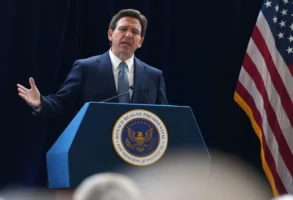
Published May 20, 2021
At the initiative of state senator Ryan Maher (and with implicit encouragement from Governor Kristi Noem), legislators in South Dakota have introduced a new tool designed to prevent the feds from forcing action civics (invariably leftist protest and lobbying) and Critical Race Theory (attacks on “whiteness,” “Eurocentrism,” etc.) onto schools. The device, a legislative “letter of intent,” would help prevent leftist education bureaucrats from accepting federal grants with strings requiring action civics and Critical Race Theory, before the legislature and the governor have had a chance to consider laws that would bar those practices.
Many state legislatures have adjourned for 2021, or are nearing the end of their sessions. While some states have passed bills barring the teaching of Critical Race Theory in K-12, most have not. Only Texas to date has advanced a bill (based on this model) that would bar both action civics and Critical Race Theory from K-12. That is important because the big federal bill that would use grants to force Critical Race Theory on the states would do the same for the pernicious practice of action civics. Should the federal Civics Secures Democracy Act (or other similar federal bills) pass before the end of the 2022 state legislative session, education bureaucrats could effectively commit a state to federal grants with strings requiring both action civics and Critical Race Theory, before legislatures and governors have had a chance to act.
Politically, it is exceedingly difficult for a governor to block state applications for juicy federal grants. President Obama managed to push Common Core on states using Race to the Top grants, well before legislators or governors had a say. The same could happen with action civics and Critical Race Theory, especially since even red-state education bureaucrats tend to be far to the left of voters. Bureaucrats will eagerly apply for grants that politicize the schools before state legislatures can act.
Click here to read the rest of this piece at National Review Online.
Stanley Kurtz is a senior fellow at the Ethics and Public Policy Center.








